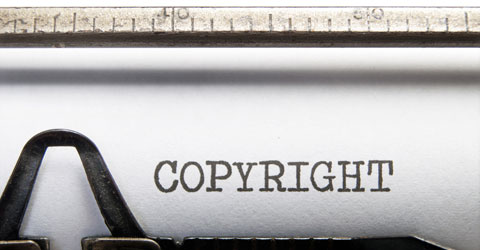The https://english.atlatszo.hu use cookies to track and profile customers such as action tags and pixel tracking on our website to assist our marketing. On our website we use technical, analytical, marketing and preference cookies. These are necessary for our site to work properly and to give us inforamation about how our site is used. See Cookies Policy
Copyright as an Exemption in Freedom of Information Law
Copyright may collide with freedom of information (FOI) in cases where the copyright holder is a third party, not the agency from which the public records are requested. This happened, for example, in the Weisberg case in the US, where a citizen requested FBI records on the investigation of the murder of Martin Luther King.
Among these records, the FBI had collected photographs from Time Inc., the parent company of Life magazine, and these photos were protected under copyright of this company. In the case, the court ruled that the photos are public records and thus subject to FOI laws, and ordered Time Inc. to join the case. The issue was resolved by agreement of the parties and the photos were released – but not all parties are open to negotiation and courts must decide each collision between copyright and FOI. In the following article, I will outline two different approaches to the problem: first, the very recently developed Hungarian approach, then the more settled and balanced attitude in the United Kingdom.

In a case from 2015, the court ruled that 77,000 pages of studies had to be released. Those studies, focusing on various policy issues and opinion polls, were written by Századvég, a think tank favored by the government. The key issue in the case was whether the studies fell under the FOI law or were exempt from publication. The government had two main arguments: the studies were preparatory works and were copyrighted and thus exempt from disclosure. The court ruled that the government failed to substantiate both of its claims, therefore the studies must be released. The Copyright Act was quickly amended by a provision allowing an exception from FOI if the requested public record is protected by copyright: under this exemption, the documents need not be copied or scanned and sent to the requester (this is the general rule), but providing access to them is sufficient.
According to the amended act (although there is no practice yet), a journalist wishing to scrutinize government studies must personally go to government facilities and read the studies there. The amendment entered into force less than a month after the delivery of the judgment.
The amendment did not affect the rights of the copyright holder, it only made technical adjustments, that is, it regulated access to the documents. The same rights are to be respected after the amendment, except that the government believes that by not sending a copy to the requester, violation of the rights of an author will be made less likely. Now, as much as before the amendment, copyrighted studies can be cited and reviewed by a journalist. The government supported the amendment for the protection of moral rights of an author, but this argument seems problematic. The unity of the work or its authorship remains protected the same way, regardless of the type of access to documents.
Even if the government’s claim is true, that closed access to documents might better protect moral rights, it is questionable why government subcontractors should be more protected, for example, against plagiarism, than writers, scholars or artists. On the contrary, there is huge public interest in public scrutiny of subcontracted studies: in the Századvég case, journalists found that a great part of those studies was useless, yet had cost a total of 13 million euros.
Then there are practical problems. The amendment did not alter the legal status of copyrighted studies: those works remain public under FOI, with the amendment only changing the way the public may access them. Since such studies remain public, will journalists or citizens be allowed to photograph the documents upon reading them in government buildings? If not, why not, given that the documents are public records under FOI law? If yes, why was the amendment necessary, besides making access to public records more difficult for journalists and active citizens?
The approach in the UK shows that copyright may be well protected without the technical burdens (requiring a physical visit to government facilities). According to the summary of the Information Commissioner’s Office (ICO), UK law allows the release of copyrighted material under FOI but upholds the copyright. The ICO recommends that public agencies “advise the applicant that the information remains copyright protected.” A journalist, for example, is then prohibited from publishing the entire study. Copyright, however, is no barrier against the public scrutinizing the records: criticism, review and news reporting are exemptions from copyright, and it would thus be allowed for a journalist to write a news piece on the reasonableness of the spending of public funds in light of the quality of studies.
The Hungarian solution looks like a way to avert the scrutiny by journalists of subcontracted studies, rather than a sincere way to protect moral rights of a copyright holder. As the copyright expert opinion in the Századvég case concluded,
the law does not prevent a journalist from citing and reviewing studies even if the material is copyrighted. In light of this, the amendment merely makes the examination of subcontracted government studies more cumbersome, but does not add any real additional layer of protection for the copyright holder.
The article was written by Dániel G. Szabó (Átlátszó Education) and published as part of the CopyCamp 2016 project supported by The Visegrad Fund.
[sharedcontent slug=”hirdetes-english”]
Share:
Your support matters. Your donation helps us to uncover the truth.
- PayPal
- Bank transfer
- Patreon
- Benevity
Support our work with a PayPal donation to the Átlátszónet Foundation! Thank you.
Support our work by bank transfer to the account of the Átlátszónet Foundation. Please add in the comments: “Donation”
Beneficiary: Átlátszónet Alapítvány, bank name and address: Raiffeisen Bank, H-1054 Budapest, Akadémia utca 6.
EUR: IBAN HU36 1201 1265 0142 5189 0040 0002
USD: IBAN HU36 1201 1265 0142 5189 0050 0009
HUF: IBAN HU78 1201 1265 0142 5189 0030 0005
SWIFT: UBRTHUHB
Be a follower on Patreon
Support us on Benevity!

